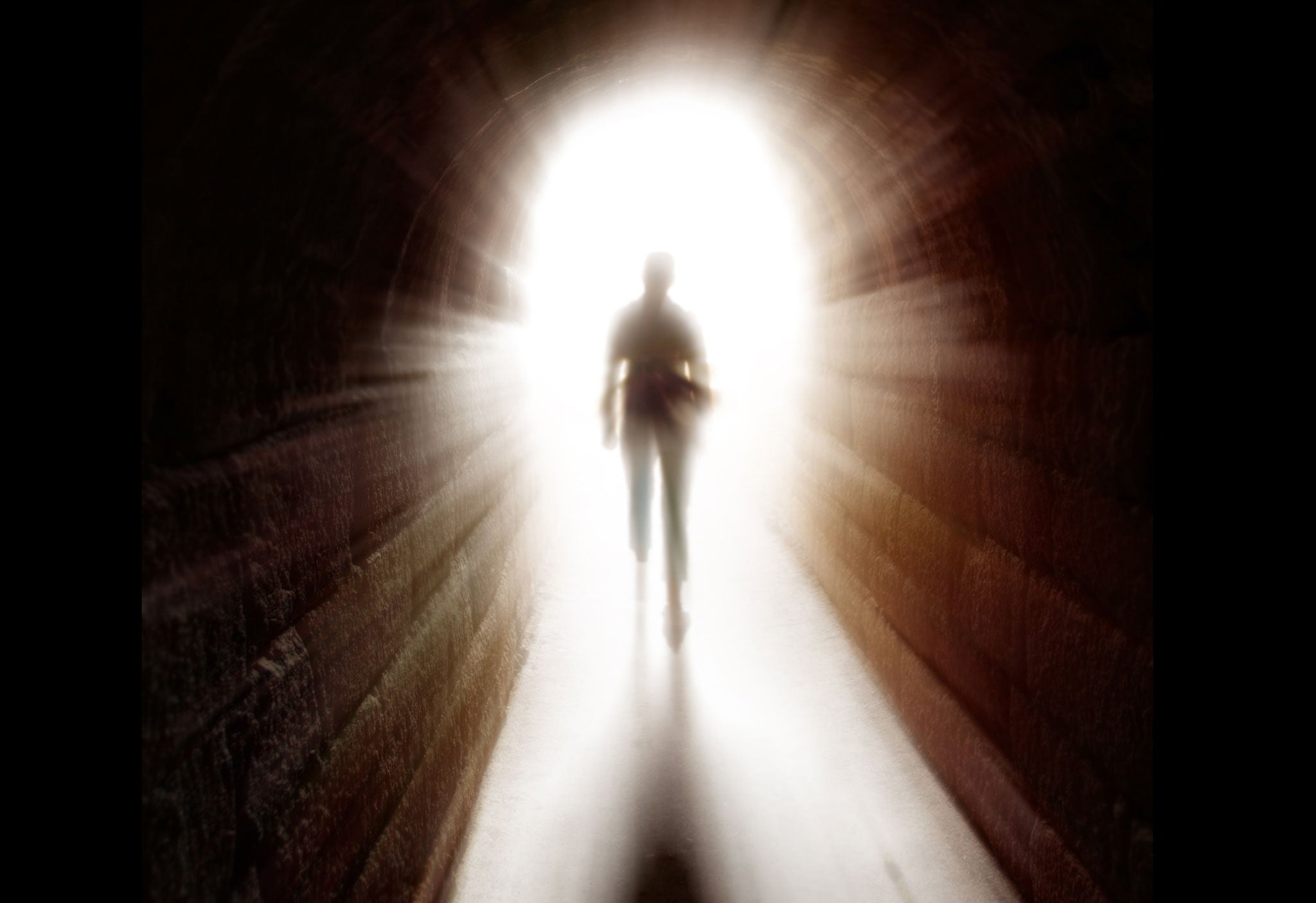Your support helps us to tell the story
From reproductive rights to climate change to Big Tech, The Independent is on the ground when the story is developing. Whether it's investigating the financials of Elon Musk's pro-Trump PAC or producing our latest documentary, 'The A Word', which shines a light on the American women fighting for reproductive rights, we know how important it is to parse out the facts from the messaging.
At such a critical moment in US history, we need reporters on the ground. Your donation allows us to keep sending journalists to speak to both sides of the story.
The Independent is trusted by Americans across the entire political spectrum. And unlike many other quality news outlets, we choose not to lock Americans out of our reporting and analysis with paywalls. We believe quality journalism should be available to everyone, paid for by those who can afford it.
Your support makes all the difference.It’s a question pondered by philosophers, scientists and the devout since the dawn of time: is there an afterlife?
While the religious would argue that life on earth is a mere warm up for an eternity spent in heaven or hell, and many scientists would dismiss the concept for lack of proof – one expert claims he has definitive evidence to confirm once and for all that there is indeed life after death.
The answer, Professor Robert Lanza says, lies in quantum physics – specifically the theory of biocentrism. The scientist, from Wake Forest University School of Medicine in North Carolina, says the evidence lies in the idea that the concept of death is a mere figment of our consciousness.
Professor Lanza says biocentrism explains that the universe only exists because of an individual’s consciousness of it – essentially life and biology are central to reality, which in turn creates the universe; the universe itself does not create life. The same applies to the concepts of space and time, which Professor Lanza describes as “simply tools of the mind”.
In a message posted on the scientist’s website, he explains that with this theory in mind, the concept of death as we know it is “cannot exist in any real sense” as there are no true boundaries by which to define it. Essentially, the idea of dying is something we have long been taught to accept, but in reality it just exists in our minds.
Professor Lanza says biocentrism is similar to the idea of parallel universes - a concept hypothesised by theoretical physicists. In much the same way as everything that could possibly happen is speculated to be occurring all at once across multiple universes, he says that once we begin to question our preconceived concepts of time and consciousness, the alternatives are huge and could alter the way we think about the world in a way not seen since the 15th century’s “flat earth” debate.
He goes on to use the so-called double-slit experiment as proof that the behaviour of a particle can be altered by a person’s perception of it. In the experiment, when scientists watch a particle pass through a multi-holed barrier, the particle acts like a bullet travelling through a single slit. When the article is not watched, however, the particle moves through the holes like a wave.
Scientists argue that the double-slit experiment proves that particles can act as two separate entities at the same time, challenging long-established ideas of time and perception.
Although the idea is rather complicated, Professor Lanza says it can be explained far more simply using colours. Essentially, the sky may be perceived as blue, but if the cells in our brain were changed to make the sky look green, was the sky every truly blue or was that just our perception?
In terms of how this affects life after death, Professor Lanza explains that, when we die, our life becomes a “perennial flower that returns to bloom in the multiverse”. He added: “Life is an adventure that transcends our ordinary linear way of thinking. When we die, we do so not in the random billiard-ball-matrix but in the inescapable-life-matrix.”
Professor Lanza's theory is explained in full in his book Biocentrism: How Life and Consciousness are the Keys to Understanding the True Nature of the Universe.

Join our commenting forum
Join thought-provoking conversations, follow other Independent readers and see their replies
Comments